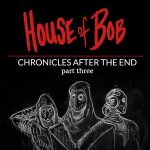How to get self published books into libraries
I stumbled on a most interesting article, how to get self published books into libraries, on the IngramSpark blog. The article was written by Robin Cutler, Director of IngramSpark, and originally posted on Bookworks

***
One of the most frequent questions I get from authors I meet at writing conferences is “How do I get my book into libraries?” I posed this same question to my friend and Ingram colleague Joyce Skokut, Director of Library Collection Development. She had just returned from the American Library Association (ALA) annual conference in Orlando. Joyce graciously met with the IngramSpark team to offer some insights and sage advice for indie authors on how best to get their books onto library shelves.
Library Organization and Purchasing Decisions
America’s 123,000 libraries fall into four basic types: Public, School, Academic and Special (armed forces, government, corporate). Like bookstores, most libraries purchase content from book vendors like Ingram or Baker and Taylor rather than directly from publishers. So right off the bat, if your book isn’t in a library vendor catalog, you are behind the curve ball.
Vendors work with libraries to create profiles that fit what type of content the library wants in its collection. For instance, many public libraries in the past have expressly denied self-published content for their collection. Academic libraries, on the other hand have been a bit more relaxed on this stance. This is especially if the book is in a trending subject or represents a scholarship being studied on its campus. Even though the self-publishing stigma is improving in the library world, it can still be a challenge today to bring your indie title to a librarian’s attention.
For both public and academic libraries, decisions to purchase are typically based on professional reviews that librarians recognize and value. Getting a positive review in a publication that libraries recognize is critical to getting your book purchased by libraries. Joyce provided us with a list of the top library review media, their audience and circulation as well as a link to their sites. You can see their submission guidelines if interested in submitting your forthcoming book for review. Keep in mind that many of these publications require submission prior to publication.
- Booklist: Adult and Youth | Circulation: 80,000 print; 160,000 online
- Library Journal: Adult | Circulation: 100,000
- Library Journal Self-e program: Adult and Youth self-published eBooks
- Publishers Weekly and PW Children’s: Adult and Youth | Circulation: 25,000
- School Library Journal: Youth titles | Circulation: 33,000 print; 44,000 online
- Voice of Youth Advocates (VOYA): Young Adult | Circulation: 7,000
- Choice Magazine: Academic | Circulation: 22,000 librarians and faculty
- Bulletin of the Center for Children’s Books: Youth | Circulation: 2,000
- Horn Book: Youth | Circulation: 13,000
- Kirkus Reviews: Adult and Youth | Circulation: 3,000 print
Libraries Require Good Book Metadata
Just as IngramSpark has been pounding the drum on good book metadata in selling to bookstores, Joyce said that librarians are just as demanding. Here are the must haves for your book to even be considered for purchase by a library:
- Good cover image is essential
- Accurate BISAC or subject codes – three is better than one
- Complete description that is well written
- Accurate age range (intended audience based on comprehension level)
- Regional information – is the book about xx place or is the author from xx place?
- Author affiliations are particularly important in the academic world. If a professor at University X writes a book, chances are high for course adoption or at least that the library will purchase a few copies. Many library profiles feature an inclusion list of affiliated authors which is generally a mixture of authors who are current or past faculty members, or who write about a certain place.
The first Indie Author Day—October 8
Like bookstores, many public and even academic libraries now offer writing and publishing workshops to their local community of writers and students. If your local library offers such a program, it would be a great opportunity for you to take part and learn what librarians know about publishing. Ideally, you should be both a patron of your local library as well as a customer of your local bookstore prior to publishing your first book. If you’re not already, consider joining your library’s friends group and volunteering. If your library doesn’t offer writing workshops, you might suggest that they take part in the first annual Indie Author Day hosted by Library Journal/Self E on October 8, 2016. On this day, libraries from all over North America will host their own local author events featuring Q&A with writers, agents and other industry leaders.
***
So what are your thoughts on how to get self published books into libraries? Please leave a comment below.




